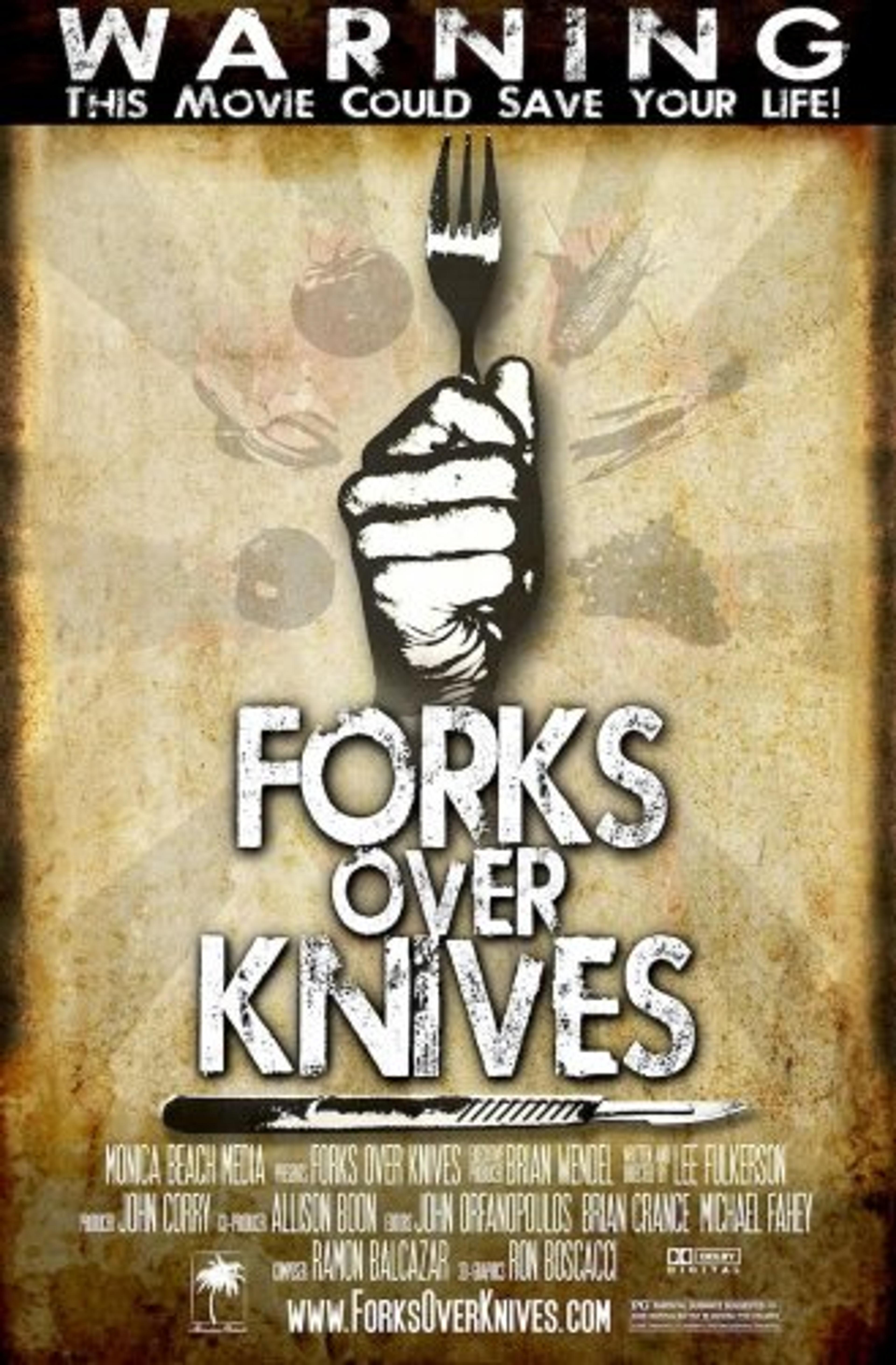What you should take away from the pro-vegan documentary ‘Forks Over Knives’
Sven Gustafson
| 3 min read

The documentary “Forks Over Knives” has captured the attention of an ever-growing list of celebrities, including Kristen Bell (a Michigan native), Ozzy Osbourne, NBA star Steve Nash and Oprah Winfrey. But what should those of us who aren’t celebrities or obsessed with celebritydom take away from a film that promotes an all-vegan diet as a solution for chronic disease?
“Forks Over Knives” makes the compelling argument that degenerative diseases like diabetes, heart disease, cancer and stroke can be prevented or even reversed by rejecting meat, dairy products and processed foods and adopting a plant-based diet. The film was released in 2011, but the “Forks Over Knives” diet has lived on partly through its ever-expanding list of celebrity endorsements, and through books, social media and its blog.
While I haven’t seen the film yet, I am familiar with the territory. I’ve seen documentaries like “Food, Inc.” and “Super Size Me,” I read the seminal pro-vegetarian tome “Diet For a Small Planet” nearly 25 years ago, and I’m a fan of Michael Pollan’s famous dictum to “Eat food. Not too much. Mostly plants.” I’m familiar with the benefits of vegetarianism, having followed that path for years (though I never went fully vegan; I like cheese and ice cream too much).
But “Forks” takes a slightly different tack, focusing mostly on the alleged negative heath impacts of eating meat and dairy products by examining the work of two researchers at Cornell University and the Cleveland Clinic.
Film reviewer Roger Ebert, whose complications following surgery for thyroid cancer caused him to lose weight and forced him to overhaul his own dietary habits, wrote that the documentary “could save your life:”
“A plant-based whole foods diet is healthy. Animal protein is not necessary, or should be used sparingly as Asians did, as a flavoring and not a main course. This adds the advantage of allowing us to avoid the chemicals and carcinogens pumped into livestock and poultry. Fast food is lethal. Parents who feed it to their children are helping them get hooked on fat, salt and sugar addiction. The facts are in. Didn’t I warn you to stop reading?”
Other reviewers have taken to task some of the conclusions underlying it. The blog Raw Food SOS goes to thoughtful lengths to critique the film’s findings even as it acknowledges admiration for its message:
“I believe the ‘plant-based diet doctors’ got a lot of things right, and a diet of whole, unprocessed plant foods (i.e., Real Food) can bring tremendous health improvements for people who were formerly eating a low-nutrient, high-crap diet. Especially short term. But I also believe this type of diet achieves some of its success by accident, and that the perks of eliminating processed junk are inaccurately attributed to eliminating all animal foods.”
Meanwhile, in a strange ending to an otherwise mostly complimentary review, The Washington Post compared the documentary to “a plate of vegetables. It’s high on nutritional value but absent any pleasure.”
Therein lies the problem: We’ve been culturally programmed to think of plant foods as the frozen peas and carrots that our parents made us eat against our will. But how can anyone honestly contend there is no pleasure to be had eating a perfectly ripened summer tomato straight off the vine? Or deny the appeal of tender spring asparagus after the long winter? Are earthy, inky red beets and their underrated greens just rabbit food — or the perfect food? Is a peach at the peak of its powers, swollen with perfumed sweetness, really nothing to write home about?
Come on. Plants are amazing, delicious and life-giving things. Who among us couldn’t stand to eat more of them and fewer animal products?
If you saw “Forks Over Knives,” what did you think? Have a look at the preview below, or watch the entire documentary on Hulu.





